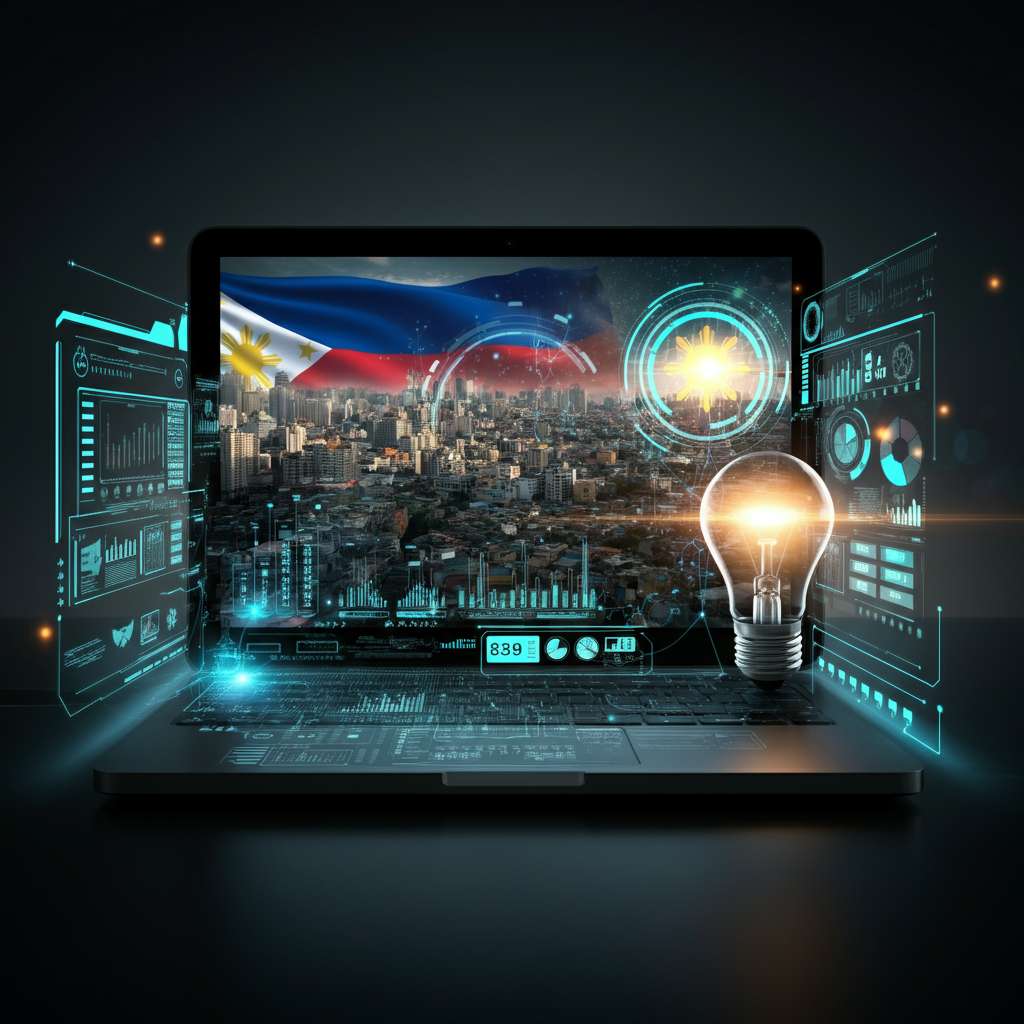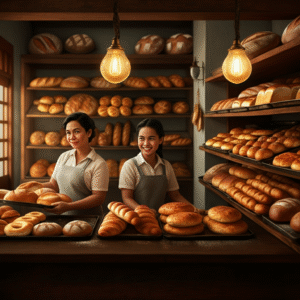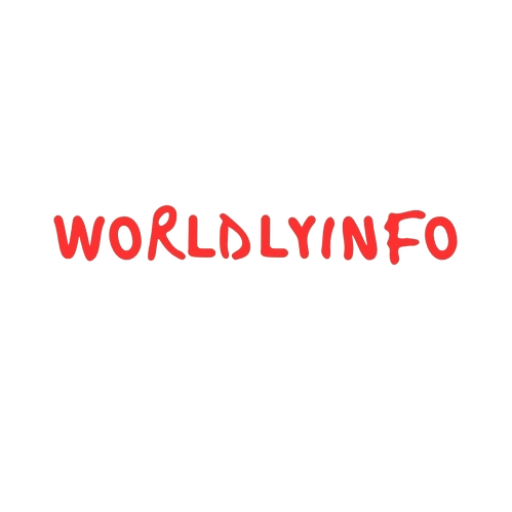
Introduction
A vibrant entrepreneurial environment characterized by inventiveness, tenacity, and an unwavering spirit may be found in the Philippines. The nation has fostered a strong tradition of entrepreneur Philippines who have influenced its economy, from small home-based enterprises to global giants. In addition to being essential to the economic structure, these businesses also act as role models for others in Southeast Asia and beyond.
This essay examines Philippine entrepreneurship in great detail. We’ll spotlight the leading businesspeople who have established outstanding brands, investigate new business trends, look at opportunities and problems, talk about the crucial role that women entrepreneur Philippines play, and assess the cultural and financial effects of entrepreneurship in the nation.

The Top Entrepreneurs in the Philippines
Filipino entrepreneurs come from a wide range of industries, including manufacturing, technology, cuisine, and retail. These are a few of the most well-known figures whose tales encourage perseverance and optimism.
1. Henry Sy – SM Group
The rise of retail in the entrepreneur Philippines is closely associated with Chinese immigrant Henry Sy. He started with a modest shoe company in Manila and built it into one of Asia’s largest corporations, the SM Group. These days, SM Malls serve as cultural landmarks in addition to being places to shop. Sy’s legacy is rooted in his unwavering commitment to giving Filipino customers a comprehensive shopping experience and reasonably priced, high-quality goods.
2. Tony Tan Caktiong – Jollibee Foods Corporation
Who hasn’t heard of Jollibee, the happy bee mascot? Tony Tan Caktiong began as an ice cream shop before switching to fast food in response to shifting consumer tastes. With locations all over the world, Jollibee has become the top fast-food company in the entrepreneur Philippines by fusing Filipino flavors with outstanding service.
3. Socorro Ramos – National Bookstore
Nanay Coring, whose real name is Socorro Ramos, started her business career with a small bookshop that offered office supplies and books. The National Bookshop is a cultural institution as well as a retail giant today. Ramos’ success highlights the value of flexibility as she overcame obstacles like World War II shortages and changing consumer preferences.
4. Edgar “Injap” Sia – Mang Inasal
Mang Inasal, a fast-food restaurant business popular for its Filipino-style barbecue and “unlimited rice” offer, was founded by Edgar Sia. He became one of the youngest billionaires in the nation after selling his brand to Jollibee for billions thanks to his talent for carving out a distinct niche.
5. Reese Fernandez-Ruiz – Rags2Riches
The influence of social entrepreneurship in the Philippines is undeniable, and Reese Fernandez-Ruiz is a prime example of this movement. She uplifts impoverished areas by turning waste materials into stylish goods through Rags2Riches. She is a role model for the younger generation because of her simultaneous emphasis on social effect and economics.
6. John Gokongwei Jr. – JG Summit Holdings
John Gokongwei expanded his grocery store into a multibillion-peso company that now includes food, real estate, and aviation. His perseverance exemplifies the resilience needed for success on a worldwide scale, particularly after overcoming obstacles in his early life.
7. Cecilio Pedro – Lamoiyan Corporation
By offering “Hapee” at far lower pricing than its foreign rivals, Cecilio Pedro’s Lamoiyan Corporation upended the toothpaste market. He demonstrates good company principles by hiring people with hearing impairments as part of his commitment to social responsibility.
Because of their perseverance, creativity, and commitment, these businesspeople have established the benchmark.

Emerging Business Trends in the Philippines
The Philippines’ entrepreneurial landscape is changing quickly due to changes in consumer behavior and technology breakthroughs. These are a few of the most noteworthy trends that are worth keeping an eye on.
1. E-commerce Growth
As smartphone usage and internet penetration in the Philippines continue to climb, e-commerce is flourishing. Businesses are finding it simpler to access a wider audience thanks to platforms like Lazada, Shopee, and locally created marketplaces. By including easy payment options and customer feedback systems, entrepreneur Philippines are using social media to interact directly with consumers.
2. Sustainability and Green Businesses
The focus has shifted to sustainability. Filipino businesspeople are pushing sustainable sourcing methods, cutting down on industry waste, and creating environmentally friendly substitutes. Green Antz, for example, addresses plastic waste by developing eco-bricks, a ground-breaking product that addresses environmental concerns.
3. Remote Work and Freelancing Services
Skilled Filipino freelancers in industries including software development, graphic design, and virtual help have profited from the global move to remote employment. Entrepreneur Philippines can now create freelance platforms or training schools that specialize in these in-demand skills thanks to the gig economy.
4. Health and Wellness Ventures
Businesses selling organic food, fitness applications, and telemedicine platforms have developed as a result of the pandemic’s increased awareness of health issues. Entrepreneur Philippines are already having an impact if they can effectively use technology to deliver these answers.
5. Micro-Entrepreneurship
An important part of the Philippine economy is made up of micro and small enterprises. Businesses like online bakeries, mobile food kiosks, and sari-sari stores—local convenience stores—are flourishing because they require little initial investment.

Challenges and Opportunities in Entrepreneurship
In the Philippines, entrepreneurship has its share of difficulties despite its dynamic environment. The challenges and opportunities they present are broken down below.
1. Access to Funding
Funding is one of the most difficult things for small business owners to do. Many people mainly rely on unofficial loan networks or personal savings. Fintech companies like GCash and First Circle, on the other hand, are resolving this issue by offering SMEs easily accessible funding options.
2. Infrastructure Limitations
While rural areas suffer logistical issues, cities like Metro Manila enjoy extensive infrastructure. Nonetheless, tech-driven logistics companies like Interlock have a chance to close this gap.
3. Regulatory and Bureaucratic Hurdles
Business regulations that are complicated and sometimes out of date might be intimidating. Nonetheless, the goal of digitizing company permitting procedures is to make these systems more user-friendly and promote entrepreneurship. New changes to the tax and business startup processes have also showed promise.
4. Market Competition
The competition has increased as the number of startups has increased. Offering distinctive value propositions, first-rate customer service, and creative solutions are the keys to standing out.
5. Digital Divide
The digital gap restricts prospects for people in rural areas, while tech-savvy businesses thrive in urban areas. This disparity can be addressed by infrastructural improvements and upskilling programs.

Role of Women Entrepreneurs
Filipino women are vital to the nation’s entrepreneurial culture. From social ventures to retail, girls are thriving as leaders and shattering preconceptions.
1. Trailblazers in Various Industries
Reese Fernandez-Ruiz (Rags2Riches), Socorro Ramos (National Bookshop), and numerous more represent how women overcome obstacles to achieve success. Additionally, women-led businesses are more likely to involve jobless women, which promotes inclusive growth.
2. Challenges Faced by Women Entrepreneurs
Biases in society, restricted access to financial resources, and work-life balance continue to be issues for women. This gap is being filled by initiatives that empower women through funding and mentoring, such those run by groups like SPARK! Philippines.
3. Impact on Society
Women entrepreneur Philippines help improve underprivileged neighborhoods and help families become financially independent. Their endeavors frequently go beyond financial success to tackle urgent societal issues like education and climate change.
Entrepreneur Philippines is fueled by a rich cultural heritage and a spirit of perseverance that inspires success stories every day.
Shaping industries and making a mark on the world stage, entrepreneur Philippines continues to set bold standards in global entrepreneurship.

Cultural and Economic Impact
Entrepreneurship is deeply woven into the Philippines’ cultural and economic fabric.
1. Boost to the Economy
Entrepreneur Philippines have a major impact on employment and GDP. 99.5% of all enterprises are MSMEs (Micro, Small, and Medium Enterprises), demonstrating the critical role that entrepreneurship plays in economic expansion.
2. Preservation of Filipino Identity
By using traditional craftsmanship or selling goods influenced by Filipino culture, entrepreneurs frequently honor their heritage through their business operations (e.g., Goldilocks bakeshop). In an increasingly globalized society, their endeavors guarantee the preservation of Filipino identity.
3. Shaping the Next Generation
A swarm of new entrepreneurs eager to leave their imprint is inspired by the success of seasoned businesspeople. The Young Entrepreneur Philippines Academy of the Philippines is one initiative that equips the next generation with vital business skills.

Conclusion
The Entrepreneur Philippines business environment is a patchwork of tenacity, inventiveness, and aspiration. Despite obstacles, the nation’s entrepreneurial ecosystem is nevertheless thriving, with seasoned tycoons, emerging stars, and aspiring micro-entrepreneur Philippines all contributing to its success.
If you’re thinking of launching your own company, learn from the achievements and insights of Filipino business owners. Keep in mind that every successful business begins with a concept and the guts to launch it. The Philippines offers full of opportunities for anyone who are willing to innovate, adapt, and make a difference, regardless of their background or financial means.
You could very well influence the next phase of the Philippines’ remarkable tale of development and innovation if you begin your entrepreneurial dream now. Discover the vibrant landscape of entrepreneur Philippines, where passionate leaders drive innovation, build iconic brands, and unlock unparalleled business opportunities.





Leave a Reply